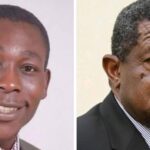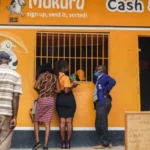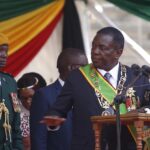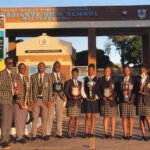Zanu PF spokesperson Christopher Mutsvangwa has ignited a firestorm of controversy with his recent accusations against Bulawayo mayor David Coltart, alleging that the mayor is prioritising tribal interests following a meeting with King Bulelani Khumalo, the heir to the Ndebele throne.
Mutsvangwa’s remarks, made during a press conference at Zanu PF headquarters last week, accused Coltart of aligning with a separatist agenda and being part of “a plot to create a separate Matabeleland state.” He further criticised the opposition-led Bulawayo City Council for allegedly ignoring national development efforts spearheaded by President Emmerson Mnangagwa.
“His Excellency President Dr ED Mnangagwa is committed to providing working capital for the people of Zimbabwe,” Mutsvangwa stated. “But the mayor is too busy playing politics to notice the industrial revival already underway.”
The accusations have been met with strong condemnation in Matabeleland, with civil society group Ibhetshu LikaZulu dismissing Mutsvangwa’s claims as “reckless and divisive.”
Ibhetshu LikaZulu secretary-general, Mbuso Fuzwayo, accused Mutsvangwa of distorting both history and current reality. “Mr Mutsvangwa’s statement that this meeting is part of a plot to create a separate Matabeleland state is not only malicious, but also a dangerous distortion of both historical truth and present reality,” Fuzwayo said.
The group contextualised Khumalo’s presence as a cultural and historical matter, not a political threat. “Let it be clearly stated: King Bulelani Lobengula is the leader of the Ndebele nation — not by the permission of Chris Mutsvangwa, Zanu PF, or any contemporary political actor, but by historical right and the lived cultural reality of the people,” Fuzwayo asserted.
The controversy also saw Local Government minister Daniel Garwe wading in, penning an angry letter to Coltart demanding an explanation for hosting the South African national. Garwe’s actions have attracted ridicule from cultural activists and politicians alike, with some critics advising him to celebrate his own culture and traditions without disparaging others.
Fuzwayo also highlighted the systemic marginalisation of Matebeleland since independence, referencing the Gukurahundi atrocities, and criticised Zanu PF for failing to revive Bulawayo’s economy. “Chris Mutsvangwa must not mistake his overrated Rambo war credentials and militant posturing for wisdom,” the statement read. “Zanu PF owns this destruction – they must not now seek scapegoats among those trying to revive a broken city.”
This incident has also brought back memories of a similar tribal controversy involving Mutsvangwa’s wife, Monica Mutsvangwa, during her tenure as Information minister. In 2020, responding to a critical pastoral letter from bishops on human rights abuses, Monica launched a scathing attack on Roman Catholic Church Archbishop Robert Ndlovu, accusing him of pushing a tribal agenda.
Her remarks included a controversial reference to the “righteous Ndebele minority” which was widely interpreted as an ethnic slur. Critics at the time accused her of fanning tribal tensions and diminishing the trauma of the Gukurahundi genocide, in which over 20,000 people, mostly Ndebeles, were killed in the 1980s. Human rights groups and political observers called for her resignation, accusing her of perpetuating a culture of impunity and tribal chauvinism. Monica was later transferred from the Information ministry to the less influential Small to Medium Enterprises ministry.
The Gukurahundi issue remains a sensitive and unresolved chapter in Zimbabwe’s history, and any perceived trivialisation or exploitation of the issue for political gain is met with fierce resistance, particularly in Matabeleland.
Fuzwayo called for national healing rooted in justice and historical truth. “We demand dignity, justice, and a new national discourse rooted in truth — not fear,” he said.

Follow @MyZimbabweNews












